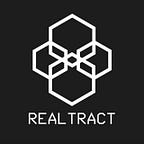PRIVACY COINS: AWARENESS VS. MISUNDERSTANDING
Bitcoin has brought the most transparent and secure record of accountable transactions, enabled the first practice of third-party accounting by a blockchain network ever. Ones say bitcoin anonymous, in fact, it is the most transparent money in the world, compared to cash and other kinds of money. Everyone can see details of a transaction on Bitcoin or Ethereum and many other public blockchains. For instance, Bob sends 1.5 ETH to Alice, the network records as follows:
- Transaction hash (ID)
- Bob wallet address (sender)
- Alice wallet address (recipient)
- Bob sends to Alice 1.5 ETH
- Transaction fee 0.0001 ETH
However, people don’t know who the actual owner of a bitcoin address is. Because of transparency in the side of transaction tracking and anonymity in the side of address owner’s identity, Bitcoin is considered to be pseudonymous. This, in several circumstances, is not a good solution. For example, in financial and banking transaction, account holders must be identified, while their transaction information is showed to authorized and involved parties only, not publicly exposed. That is why privacy coins turned into an interesting category in the cryptocurrency space. There are dozens of such cryptos. Several well-known ones include Monero (XMR), DASH, Zcash (ZEC), Komodo (KMD), Verge (XVG), GRIN, BEAM. Blocks of those networks, basically, record all inputs (senders) and all outputs (receivers) but don’t specify their mapping, i.e. don’t clarify like from Bob to Alice.
Unfortunately, instead of developing protocols to fit banking industry, the privacy coins intend to run out government’s overseeing and to facilitate confidential transactions in money laundering activities and illicit financing. That is why several large exchanges have delisted Monero, Dash and Zcash to comply with certain regulations.
Privacy of transactions is a necessity of banking systems. On the other side, transparency is essential for accounting and audit. On public blockchains like Bitcoin and Ethereum, everything is transparent. Ones argue that it unsuits finance, health and many others. It seems to have a trade-off (dilemma) in blockchain: privacy vs transparency.
It should be distinguished privacy vs confidentiality. Privacy ensures that transaction information is distributed to certain involved parties, not publicly available but can be shown to authorities per request. On the contrary, confidentiality means that no one can know the full record of a transaction except the sender and the receiver, even some details may disappear forever some days. Obviously, a confidential transaction satisfies privacy but not vice versa. Banking and financial services need privacy and transparency but not confidentiality like what privacy coins offer.
How can bitcoin deal with the privacy vs transparency problem? It is implemented that all transactions on Bitcoin Network can be tracked and traced. Just one more simple step to be complete. Whenever people want to buy or cash out bitcoin (or alternative coins) for fiat, they must access to crypto-fiat exchanges or OTCs. Know Your Customer (KYC) is a simple procedure to comply with Anti-Money Laundering (AML) regulations. KYC allows exchanges identifying an individual to one or several bitcoin address. Then, privacy is guaranteed by the firms while transparency is preserved. This is what Coinbase and other crypto exchanges have done for regulatory compliance.
Some authors argue that presently existing privacy coins should be renamed as “anonymous coins”. In practice, if a crime wants to use GRIN or BEAM (or any others), he still needs to cash out somewhere. Therefore, fiat-gateways are the bottleneck to money laundering. Together with low liquidity and harder regulations on crypto exchanges, anonymous coins are not a perfect mean for money laundering and illicit financing as desired.
Capability to support regulatory compliance (including AML) is a must for blockchains to get mass adoption. Zcash and Dash are going to develop protocols that enable privacy in an optional layer along with suitable tracking ability. A dark future is waiting for anonymous coins that fully support confidential transactions without traceability.
In the next article, we will discuss extensively how blockchains solve the privacy vs transparency dilemma and available techniques to overcome the challenge.
This article is part of a series of analytical articles produced by RealTract Network in association with Paven & Associates.
